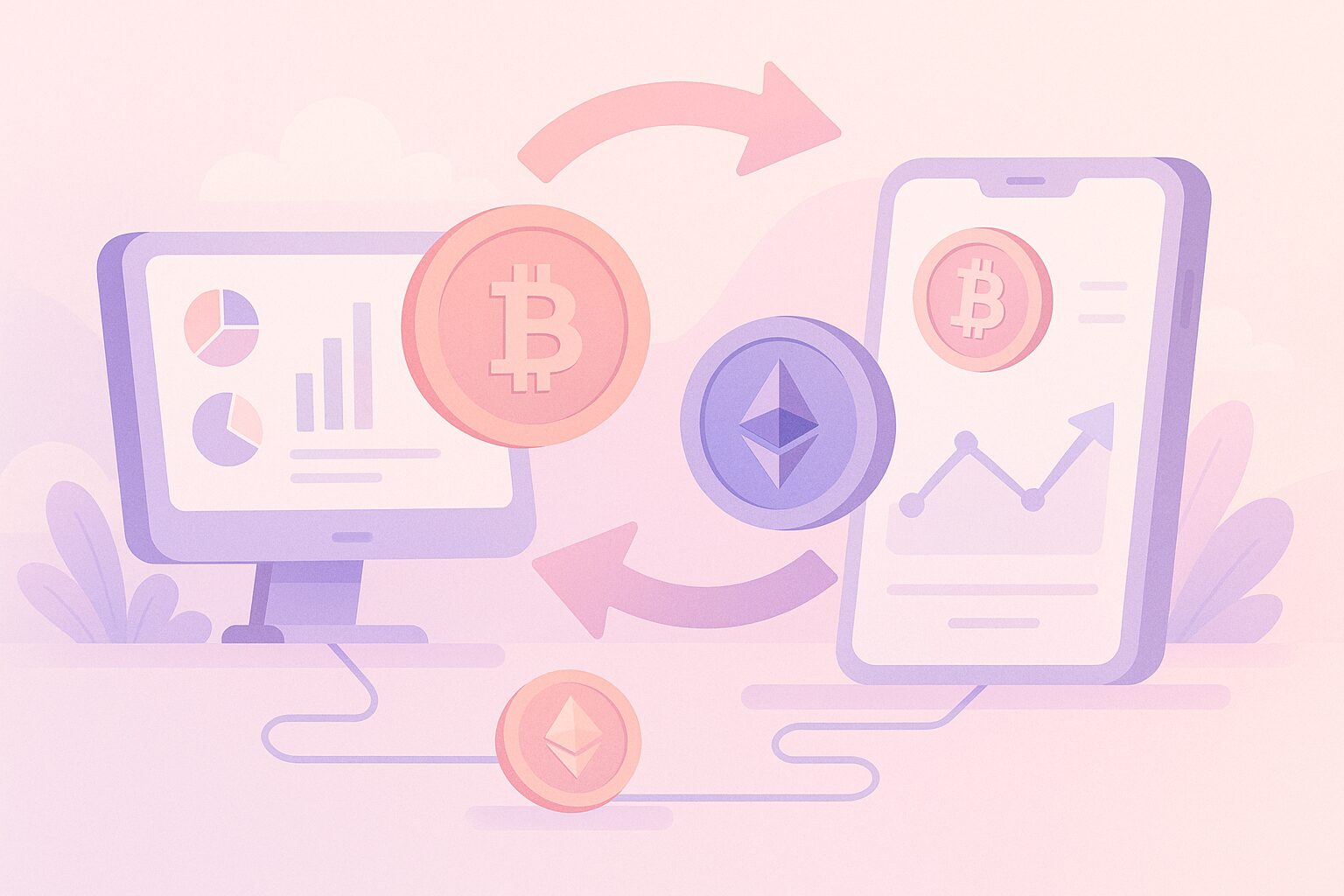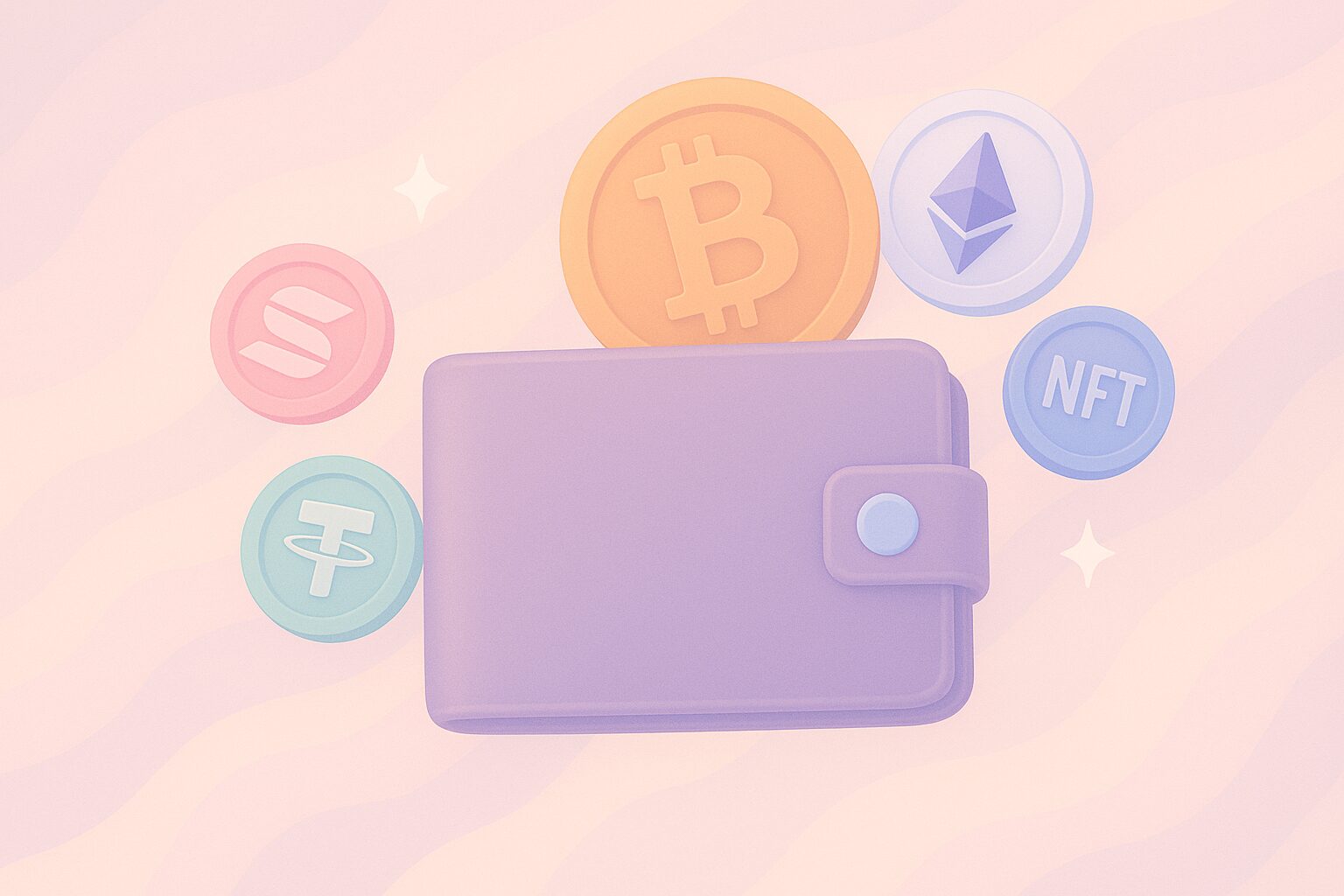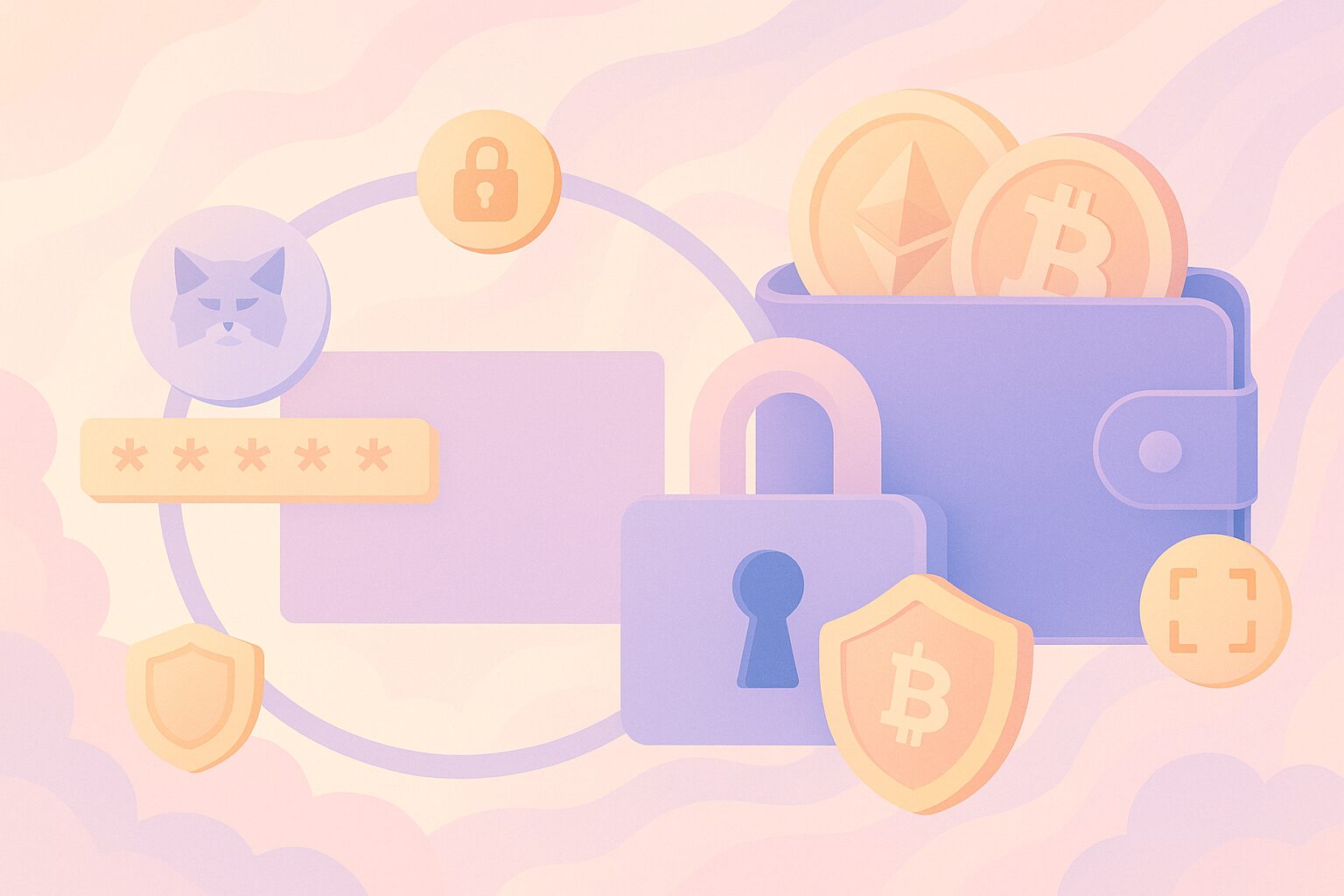Get Started
Our beginner’s own-your-crypto roadmap will guide you step-by-step on your journey from curiosity to taking custody of your own assets.
Intro to Crypto Wallets & Exchanges
Understanding how to store and trade cryptocurrency is key to managing your digital assets. Crypto wallets are tools that let you securely hold and control your coins, while exchanges are platforms where you can buy, sell, and trade cryptocurrencies. This section features posts that explain the different types of wallets and exchanges, how they work, and tips for using them safely and effectively. Whether you’re setting up your first wallet or exploring trading options, these guides will help you navigate the crypto ecosystem with confidence.
Software wallets (Hot wallets)
A software connected to the internet that store your private keys online and used for regular transactions.
Hardware wallets (Cold wallets)
A physical device that stores your private keys offline, protecting your crypto from online attacks.
Software wallets (Hot wallets)
A software connected to the internet that store your private keys online and used for regular transactions.
Hardware wallets (Cold wallets)
A physical device that stores your private keys offline, protecting your crypto from online attacks.
Multisig wallets
A predefined number of private keys is required to sign off on any transaction, so no single person can move the funds without the consent of others.
Software wallets (Hot wallets)
A software connected to the internet that store your private keys online and used for regular transactions.
Hardware wallets (Cold wallets)
A physical device that stores your private keys offline, protecting your crypto from online attacks.
Multisig wallets
A predefined number of private keys is required to sign off on any transaction, so no single person can move the funds without the consent of others.
Software wallets (Hot wallets)
A software connected to the internet that store your private keys online and used for regular transactions.
Hardware wallets (Cold wallets)
A physical device that stores your private keys offline, protecting your crypto from online attacks.
Softwareware wallets (Hot wallets)
A software connected to the internet that store your private keys online and used for regular transactions.
Hardware wallets (Cold wallets)
A physical device that stores your private keys offline, protecting your crypto from online attacks.
A multichain wallet simplifies the experience, letting you hold multiple cryptocurrencies without needing a different wallet for every type of token.
Stay Safe and Informed in Crypto
The world of cryptocurrency is full of opportunities—but also risks. This section empowers you to protect your assets and make smarter decisions by spotlighting common scams, introducing essential security tools, and teaching you how to use blockchain explorers. By understanding how to recognize threats, safeguard your holdings, and verify transactions transparently, you’ll gain the confidence and knowledge to navigate the crypto space safely and with clarity.

































